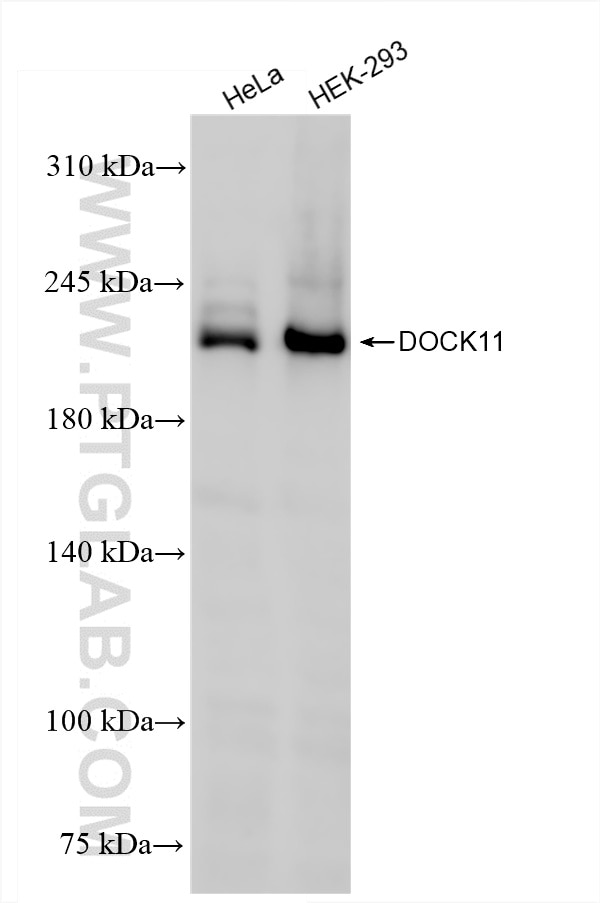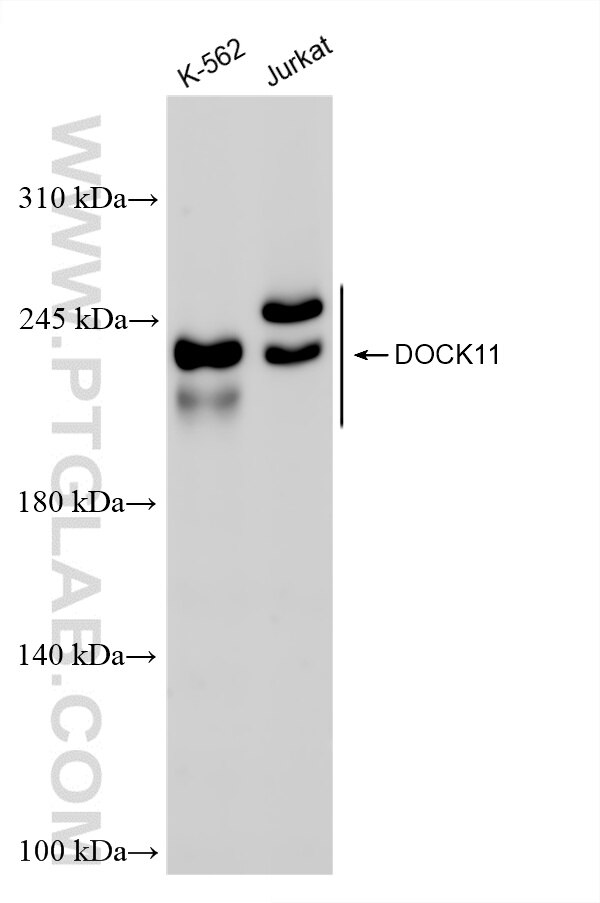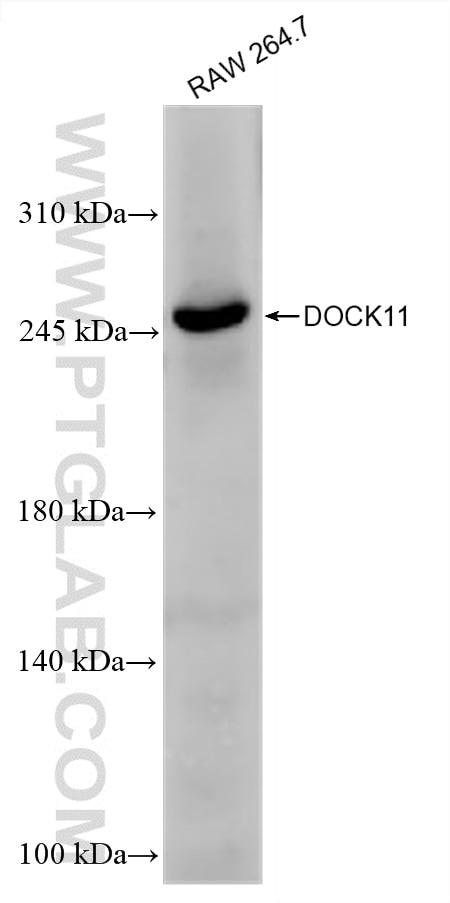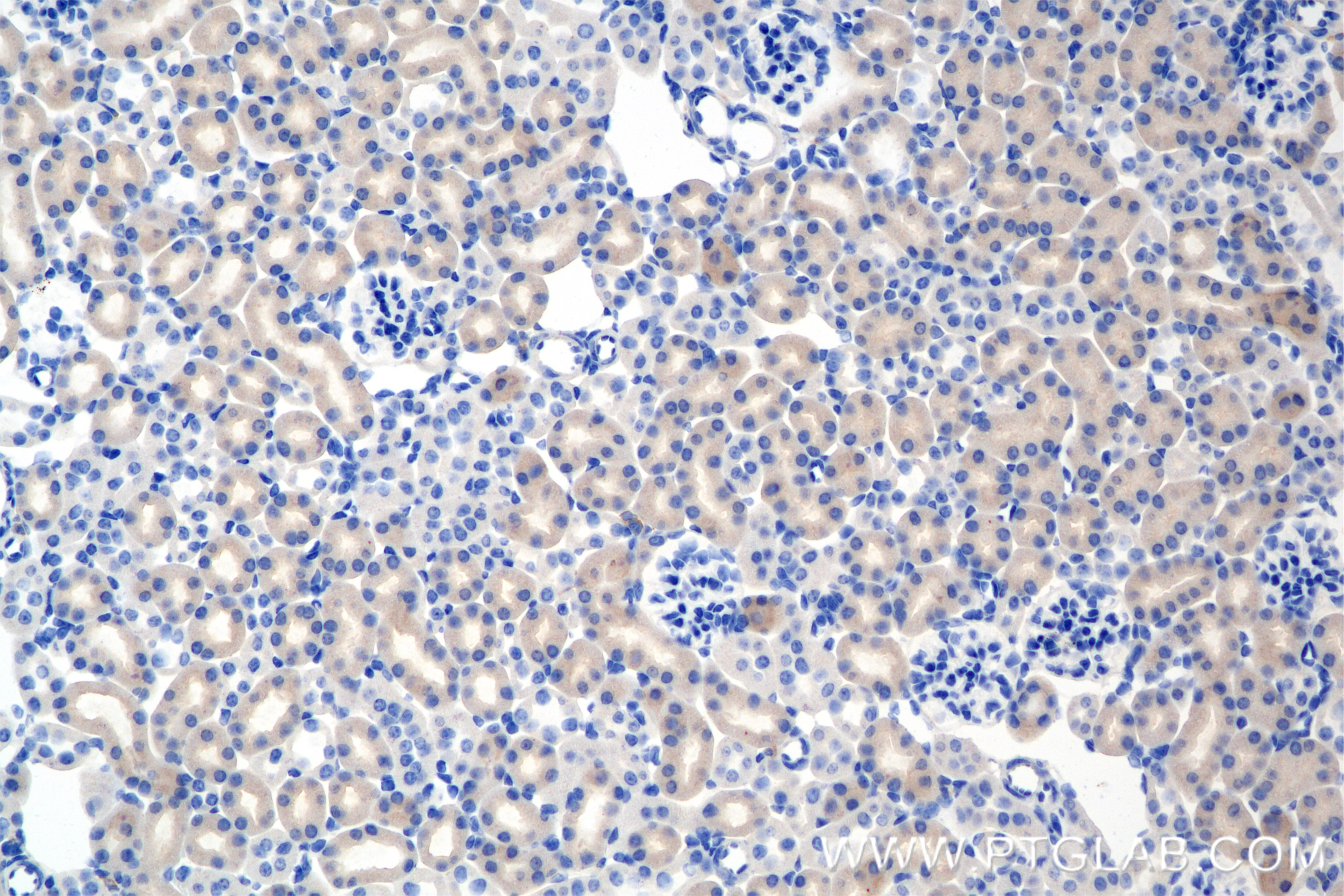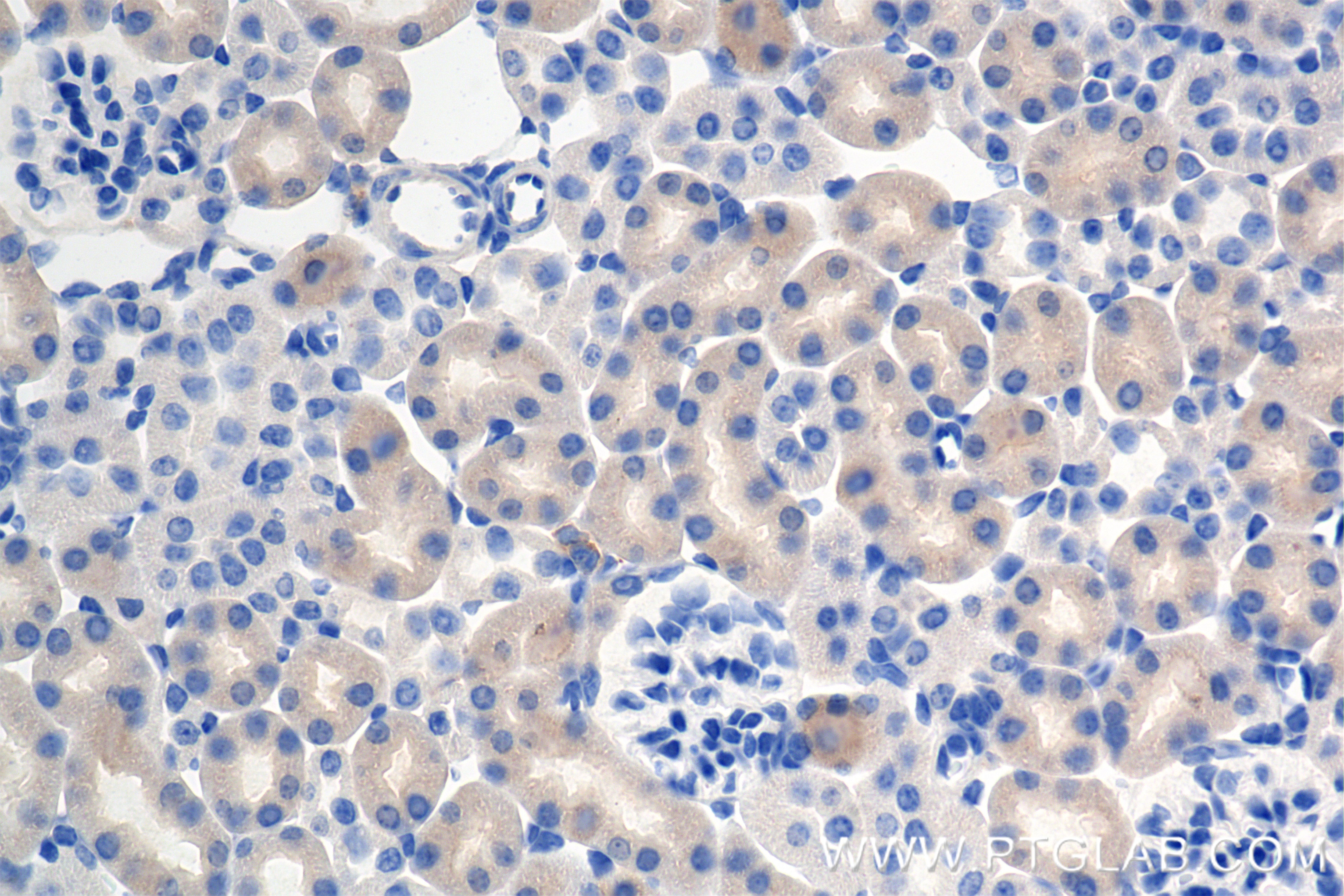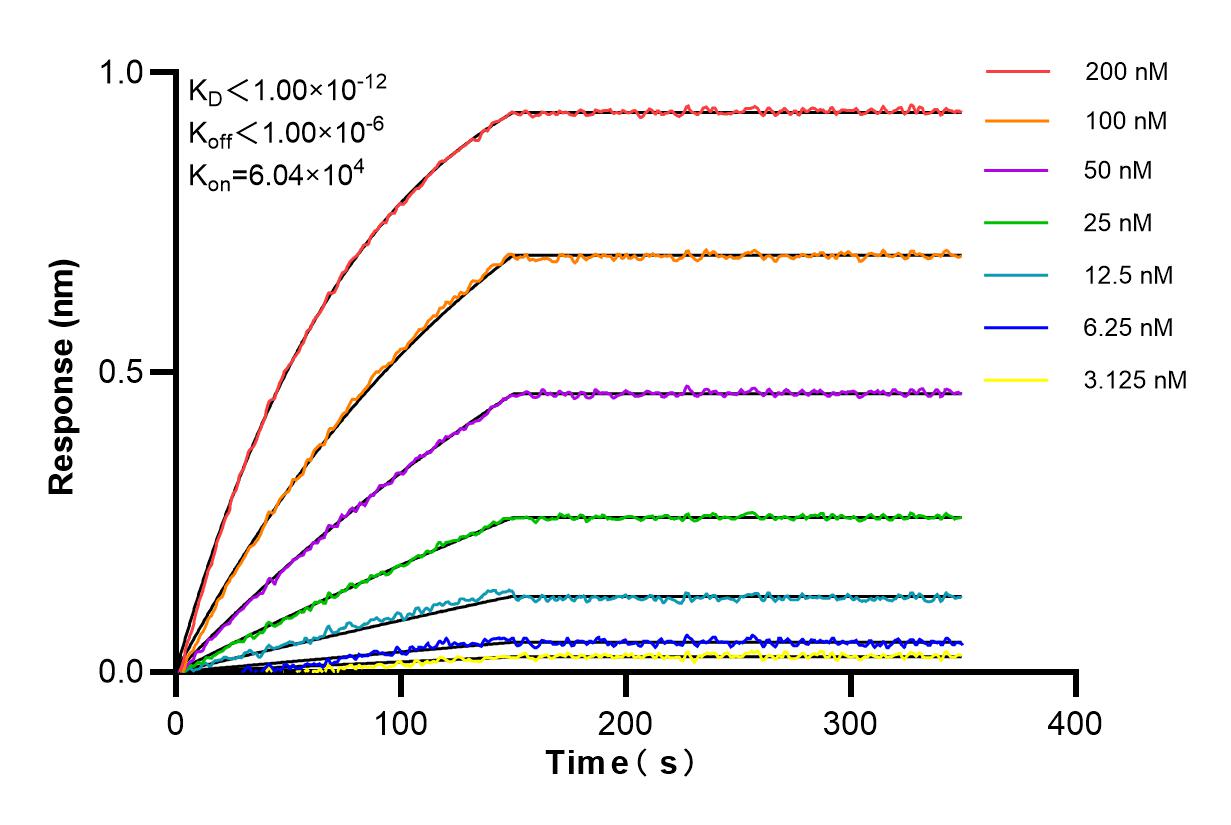Tested Applications
| Positive WB detected in | HeLa cells, K-562 cells, RAW 264.7 cells, HEK-293 cells, Jurkat cells |
| Positive IHC detected in | mouse kidney tissue Note: suggested antigen retrieval with TE buffer pH 9.0; (*) Alternatively, antigen retrieval may be performed with citrate buffer pH 6.0 |
Recommended dilution
| Application | Dilution |
|---|---|
| Western Blot (WB) | WB : 1:1000-1:6000 |
| Immunohistochemistry (IHC) | IHC : 1:250-1:1000 |
| It is recommended that this reagent should be titrated in each testing system to obtain optimal results. | |
| Sample-dependent, Check data in validation data gallery. | |
Product Information
85022-3-RR targets DOCK11 in WB, IHC, ELISA applications and shows reactivity with human, mouse samples.
| Tested Reactivity | human, mouse |
| Host / Isotype | Rabbit / IgG |
| Class | Recombinant |
| Type | Antibody |
| Immunogen |
CatNo: Ag35831 Product name: Recombinant human DOCK11 protein Source: e coli.-derived, PGEX-4T Tag: GST Domain: 250-400 aa of NM_144658 Sequence: HYLAAETEQEMEEWLITLKKIIQINTDSLVQEKKETVETAQDDETSSQGKAENIMASLERSMHPELMKYGRETEQLNKLSRGDGRQNLFSFDSEVQRLDFSGIEPDIKPFEEKCNKRFLVNCHDLTFNILGQIGDNAKGPPTNVEPFFINL Predict reactive species |
| Full Name | dedicator of cytokinesis 11 |
| Calculated Molecular Weight | 238 kDa |
| Observed Molecular Weight | 238 kDa |
| GenBank Accession Number | NM_144658 |
| Gene Symbol | DOCK11 |
| Gene ID (NCBI) | 139818 |
| Conjugate | Unconjugated |
| Form | Liquid |
| Purification Method | Protein A purification |
| UNIPROT ID | Q5JSL3 |
| Storage Buffer | PBS with 0.02% sodium azide and 50% glycerol, pH 7.3. |
| Storage Conditions | Store at -20°C. Stable for one year after shipment. Aliquoting is unnecessary for -20oC storage. 20ul sizes contain 0.1% BSA. |
Background Information
DOCK11(also known as Zizimin2) is a member of CDM (Ced-5, DOCK180, and Myoblast City) family guanine nucleotide exchange factor mainly expressed in immune cells. As a guanine nucleotide exchange factor, DOCK11 activated the rho family GTPase cell division cycle 42 (CDC42), resulting in cytoskeletal reorganization.
Protocols
| Product Specific Protocols | |
|---|---|
| IHC protocol for DOCK11 antibody 85022-3-RR | Download protocol |
| WB protocol for DOCK11 antibody 85022-3-RR | Download protocol |
| Standard Protocols | |
|---|---|
| Click here to view our Standard Protocols |

